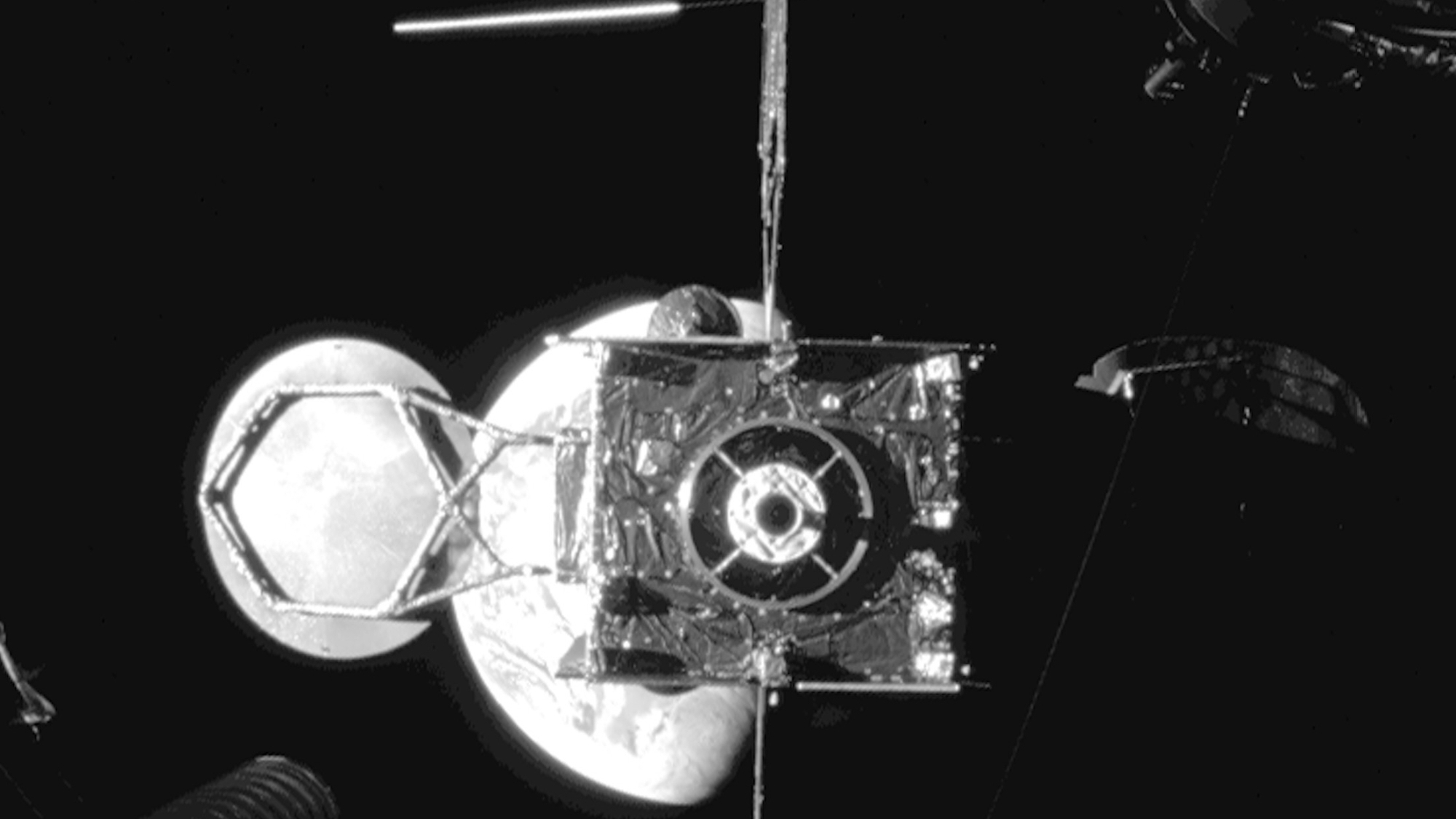Newt Gingrich on Space Exploration: 'NASA Is Standing in the Way'

Candidates for the 2012 Republican presidential nomination tackled the future of NASA, without its space shuttle program, among other issues during the GOP's first debate, in New Hampshire Monday night (June 13).
The question on NASA's future came from reporter Jean Mackin of news station WMUY in Hancock, N.H.: "What role should the government play in future space exploration?"
Mackin directed the question at former House Speaker Newt Gingrich, noting that NASA is ending its 30-year space shuttle program next month and will pay Russia's space program $63 million per seat to fly American astronauts on Soyuz spacecraft for trips to the International Space Station until commercial U.S. spacecraft become available. The last shuttle to fly will be Atlantis, which is set to launch July 8.
Gingrich, former Minnesota Gov. Tim Pawlenty and former Massachusetts Gov. Mitt Romney, three of the seven candidates appearing in the nationally televised debate, weighed in on NASA's future. Here were their responses. (CNN anchor John King served as the debate's moderator.)
Newt Gingrich, former speaker of the House of Representatives
Well, sadly — and I say this sadly, because I'm a big fan of going into space and I actually worked to get the shuttle program to survive at one point — NASA has become an absolute case study in why bureaucracy can't innovate.
If you take all the money we've spent at NASA since we landed on the moon and you had applied that money for incentives to the private sector, we would today probably have a permanent station on the moon, three or four permanent stations in space, a new generation of lift vehicles. And instead what we've had is bureaucracy after bureaucracy after bureaucracy, and failure after failure.
Get the Space.com Newsletter
Breaking space news, the latest updates on rocket launches, skywatching events and more!
I think it's a tragedy, because younger Americans ought to have the excitement of thinking that they, too, could be part of reaching out to a new frontier. [Photos: SpaceX's First Private Falcon 9 Rocket Launch]
You know, you'd asked earlier, John, about this idea of limits because we're a developed country. We're not a developed country. The scientific future is going to open up, and we're at the beginning of a whole new cycle of extraordinary opportunities. And, unfortunately, NASA is standing in the way of it, when NASA ought to be getting out of the way and encouraging the private sector.
[Later, in response to a comment by King:]
John, you mischaracterized me, I didn't say "end the space program." We built the transcontinental railroads without a national department of railroads. I said you could get into space faster, better, more effectively, more creatively if you decentralized it, got it out of Washington, and cut out the bureaucracy. It's not about getting rid of the space program; it's about getting to a real space program that works.
Tim Pawlenty, former Minnesota governor
I think the space program has played a vital role for the United States of America.
[In response to King's question: But can the United States afford it?]
In the context of our budget challenges, it can be refocused and re-prioritized, but I don't think we should be eliminating the space program. We can partner with private providers to get more economies of scale and scale it back, but I don't think we should eliminate the space program. [Vote Now: Best Spaceships of All Time]
Mitt Romney, former Massachusetts governor
I think fundamentally there are some people — and most of them are Democrats, but not all — who really believe that the government knows how to do things better than the private sector ... And they happen to be wrong.
NASA's future
NASA's final space shuttle flight is scheduled for a 12-day mission to deliver supplies and equipment to the International Space Station. The mission is designated STS-135, representing NASA's 135th space shuttle flight since the fleet began launching into orbit in April 1981.
NASA is retiring its shuttle fleet to make way for a new space exploration program aimed at sending humans to an asteroid by 2020 and to Mars in the 2030s.
The space agency is developing a new Multi-Purpose Crew Vehicle, based on the Orion space capsule designed under its previous moon-oriented Constellation exploration program, to serve as the core vehicle of those deep-space missions.
You can follow SPACE.com Managing Editor Tariq Malik on Twitter @tariqjmalik. Follow SPACE.com for the latest in space science and exploration news on Twitter @Spacedotcom and on Facebook.
Join our Space Forums to keep talking space on the latest missions, night sky and more! And if you have a news tip, correction or comment, let us know at: community@space.com.

Tariq is the Editor-in-Chief of Space.com and joined the team in 2001, first as an intern and staff writer, and later as an editor. He covers human spaceflight, exploration and space science, as well as skywatching and entertainment. He became Space.com's Managing Editor in 2009 and Editor-in-Chief in 2019. Before joining Space.com, Tariq was a staff reporter for The Los Angeles Times covering education and city beats in La Habra, Fullerton and Huntington Beach. In October 2022, Tariq received the Harry Kolcum Award for excellence in space reporting from the National Space Club Florida Committee. He is also an Eagle Scout (yes, he has the Space Exploration merit badge) and went to Space Camp four times as a kid and a fifth time as an adult. He has journalism degrees from the University of Southern California and New York University. You can find Tariq at Space.com and as the co-host to the This Week In Space podcast with space historian Rod Pyle on the TWiT network. To see his latest project, you can follow Tariq on Twitter @tariqjmalik.









